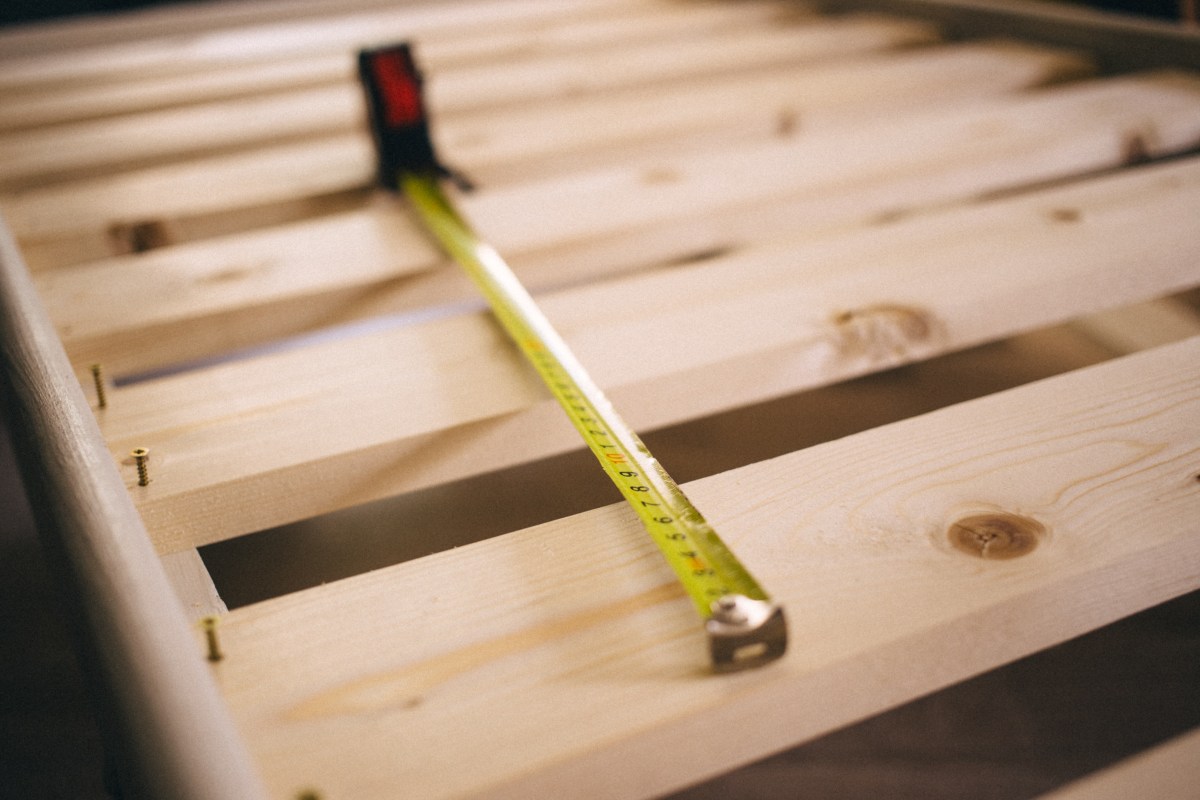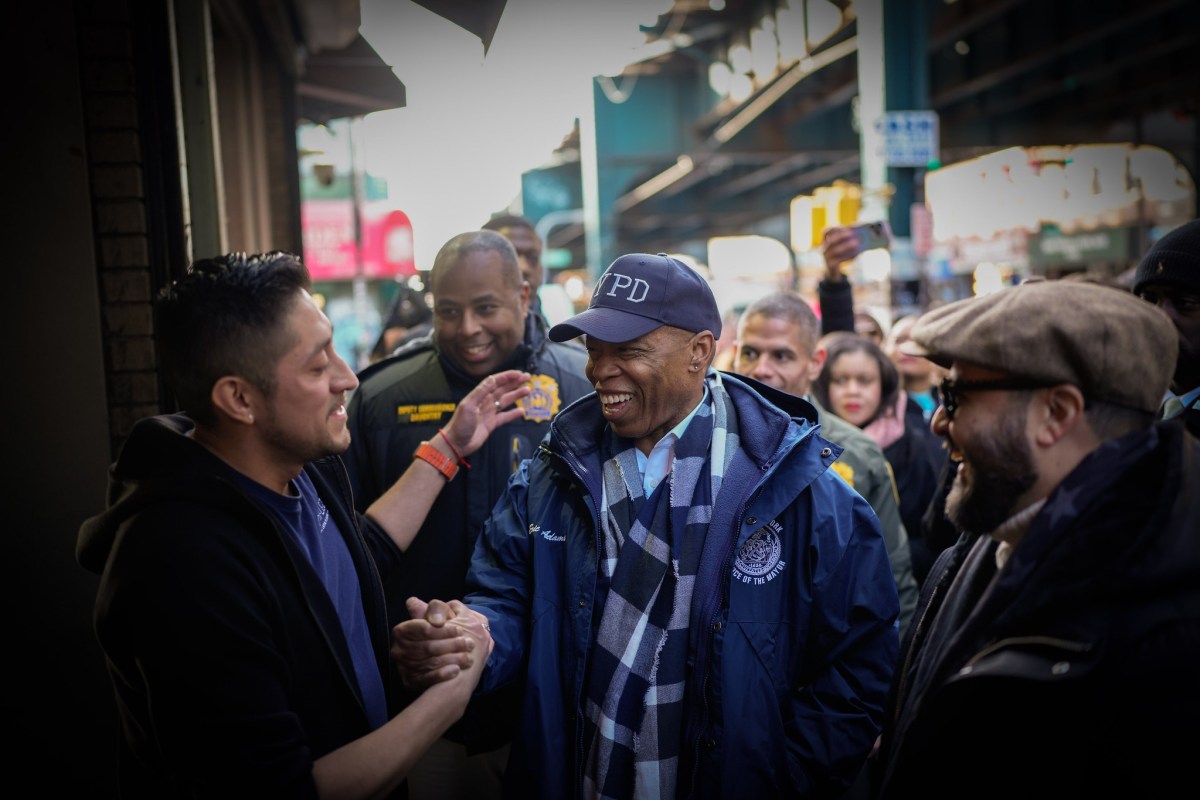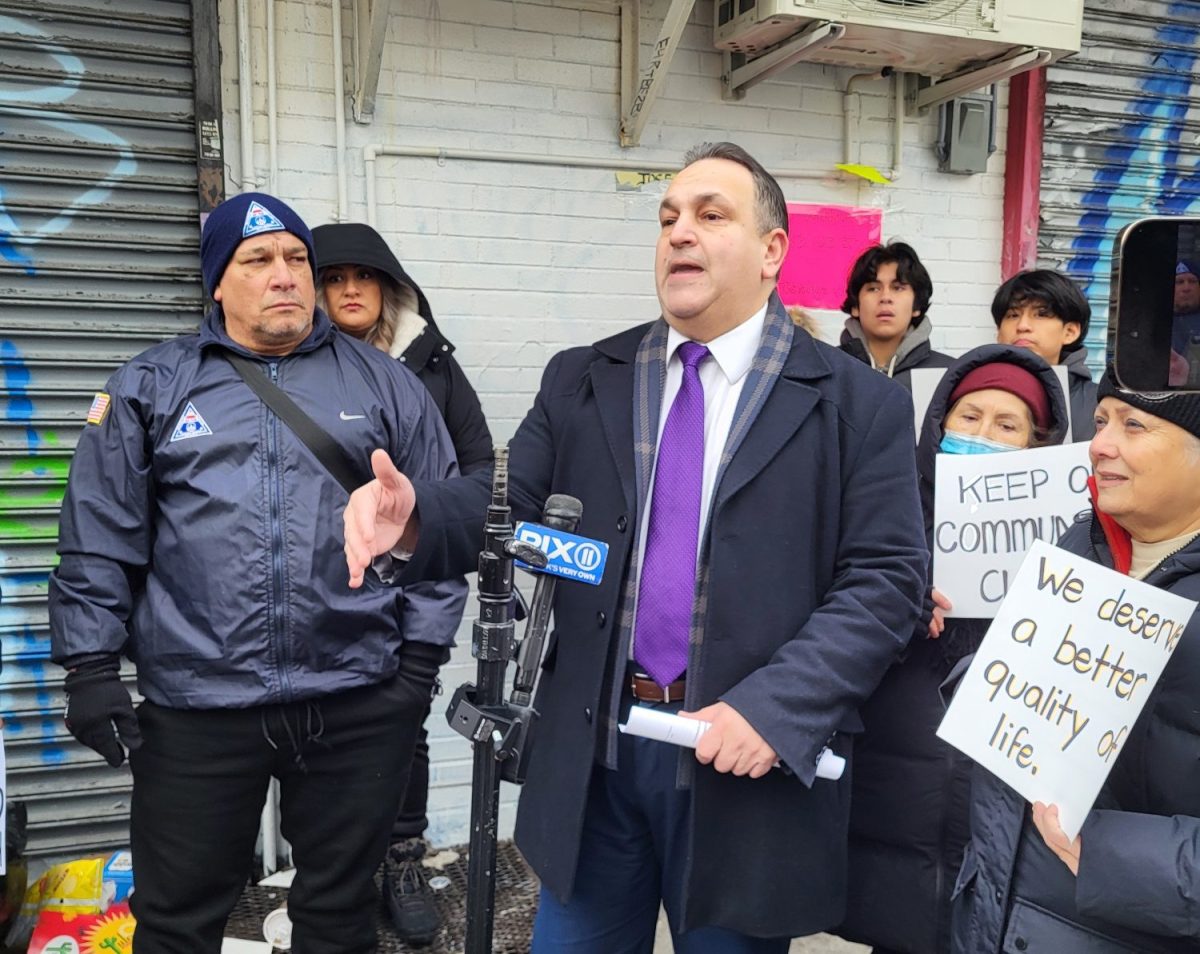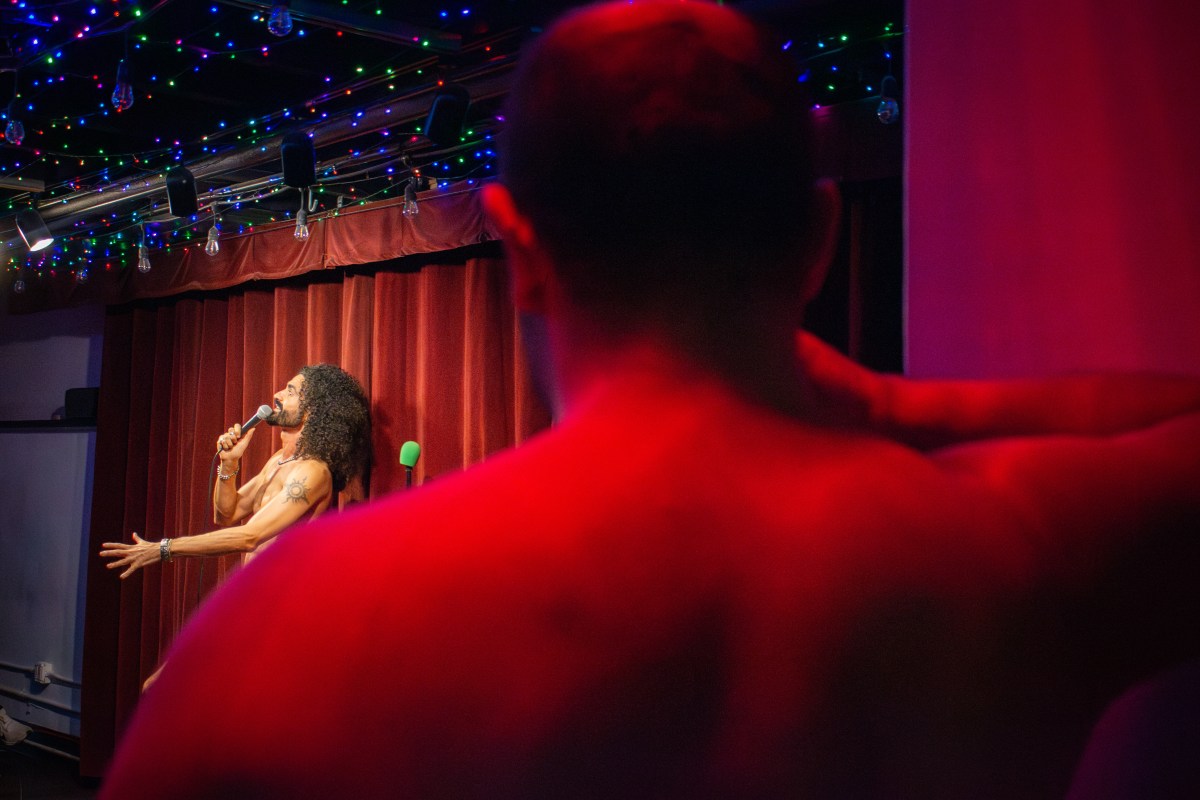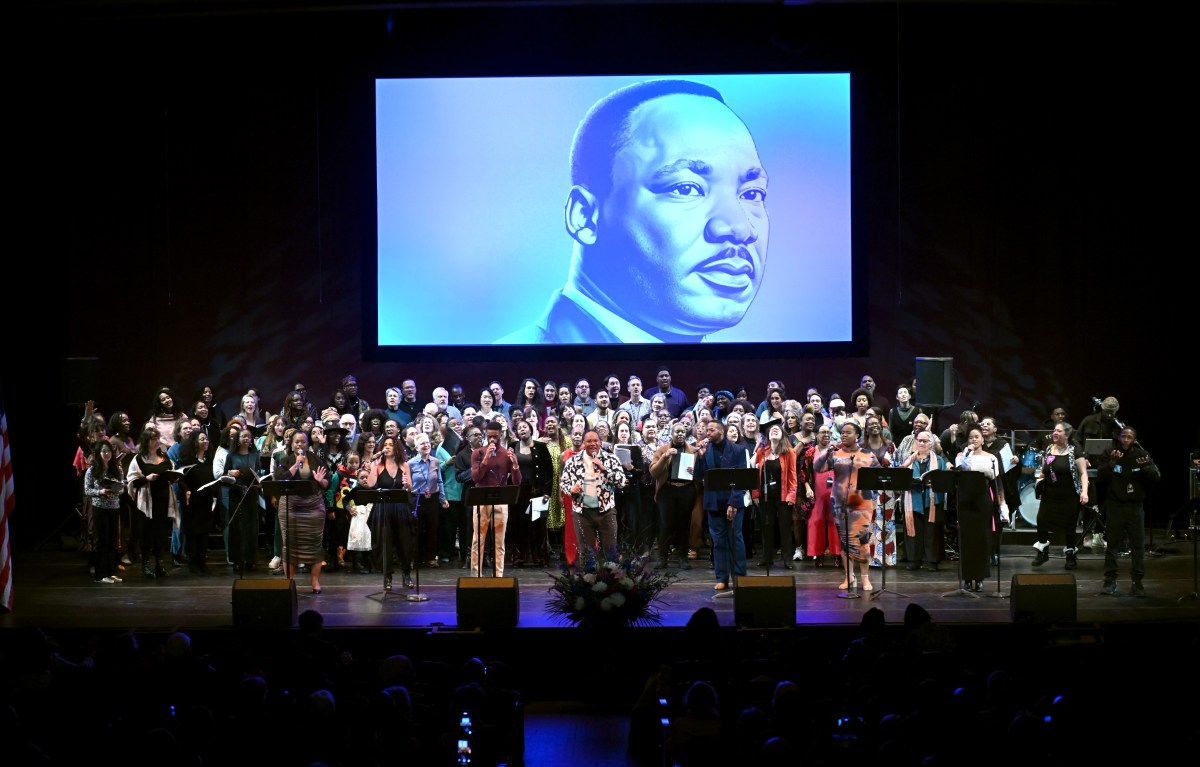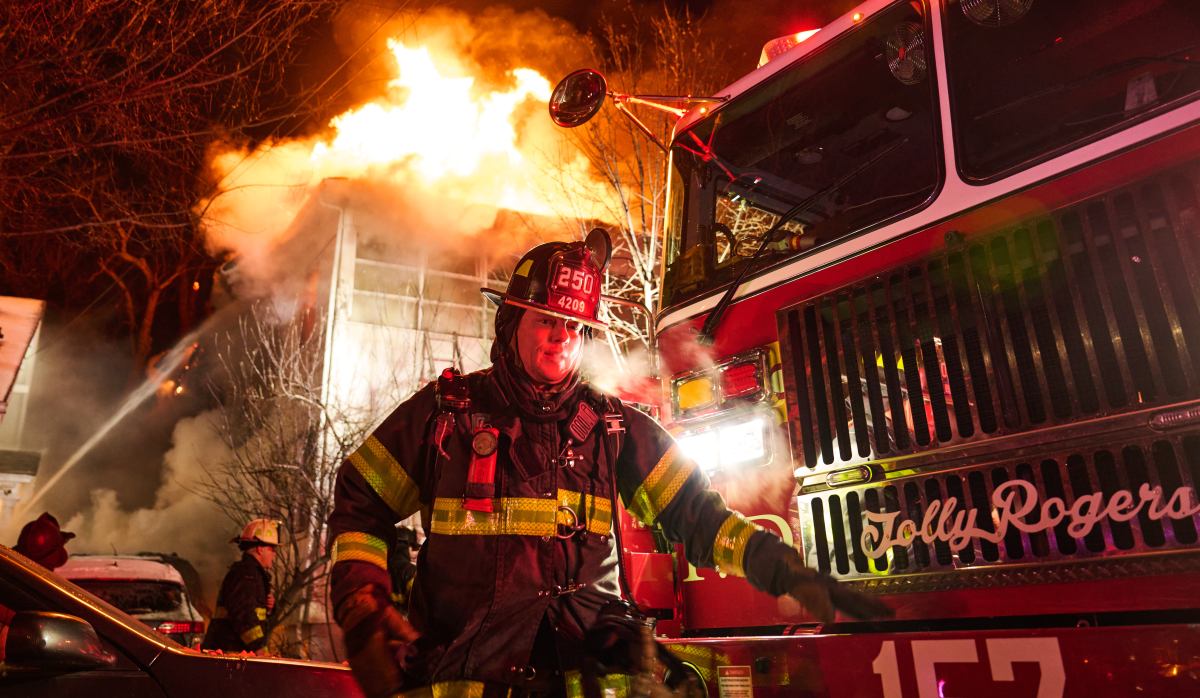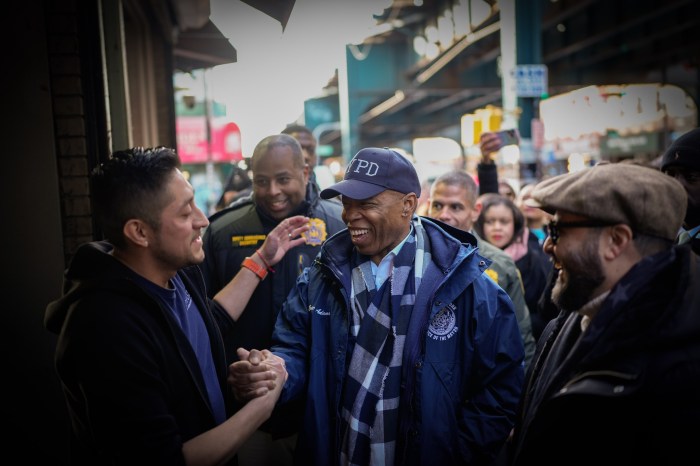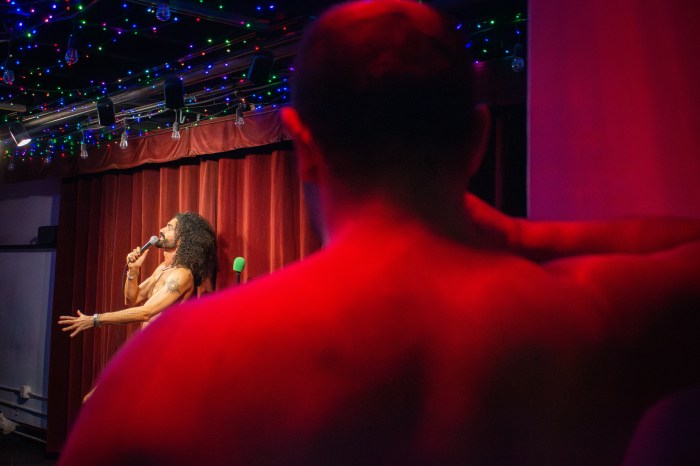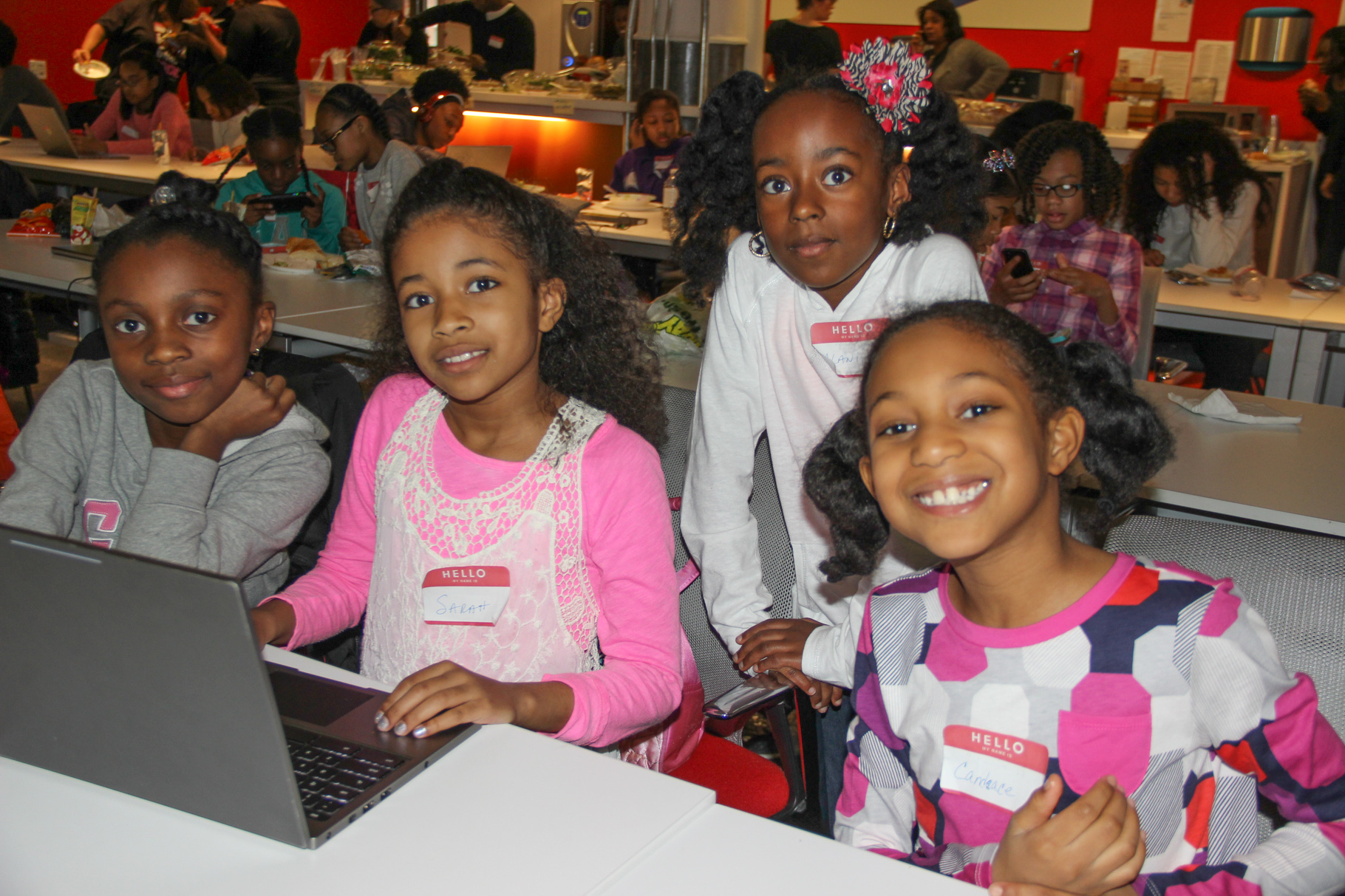
BY TEQUILA MINSKY | Seventy-one girls ages 7 to 17 sat in front of laptops, focusing their concentration on a Saturday earlier this month during the “Build a Game in a Day with ‘Scratch’ ” app development workshop sponsored by Black Girls CODE. The full-day workshop was held on the second floor of Chelsea Market, across from the Google building.
“Many youth — and people in general — don’t know what engineers do, and the events of Black Girls CODE offer opportunities for girls to learn about the profession,” said Raven Ali, one of the two staff members of the New York City Chapter of Black Girls CODE.
Ali presented an economic projection statistic: By 2018, there will be 2.4 million unfilled science, technology, engineering and mathematics, or STEM, jobs.
Engineer Kimberly Bryant started Black Girls CODE in the Bay Area in 2011 with the goal of having events that expose girls to professional women who are engineers, data scientists, user-interface designers and product designers — in other words, STEM professionals. Today, there are 15 chapters nationwide, and the New York City Chapter — one of the most active — draws girls from the metro area, some experienced, others first-timers, to coding. These students attend public, charter, religious and private schools.
Google is the major sponsor of the New York City Chapter. The search giant’s head of external affairs, William Floyd, acknowledged the abysmal lack of diversity in tech fields. Partnerships like this help “build a community of technologists,” he said.
Sharing laptops provided by Google, the “gamers” worked in pairs led by three technical instructors. They used the coding programming language Scratch and were guided by a team of assisting professionals. Participants built four games. By day’s end, the “game designers” presented their creations to parents, as well as the other girls.
“By the workshop completion, they experience the achievement of building a game,” Ali said proudly.
Black Girls CODE sponsors a three-day Hackathon in late June for girls between 12 and 17 where students in teams of four participate in creating solutions to social issues within their communities — building “skills, confidence, experience and having lots of fun” while building apps.
Olivia Ross, 14, who volunteered at the Chelsea workshop has been coding since she was 10 and was part of last year’s winning team. They created apps to combat domestic violence — specifically that helped link to more information, support lines and access to safe places. The winning team members each received $1,500 to further their education. For Ross, who knows how to code, her learning experience was working in a cooperative team situation.
Black Girls CODE also runs a two-week computer camp in the city in mid-August. For more information, visit www.blackgirlscode.com.





